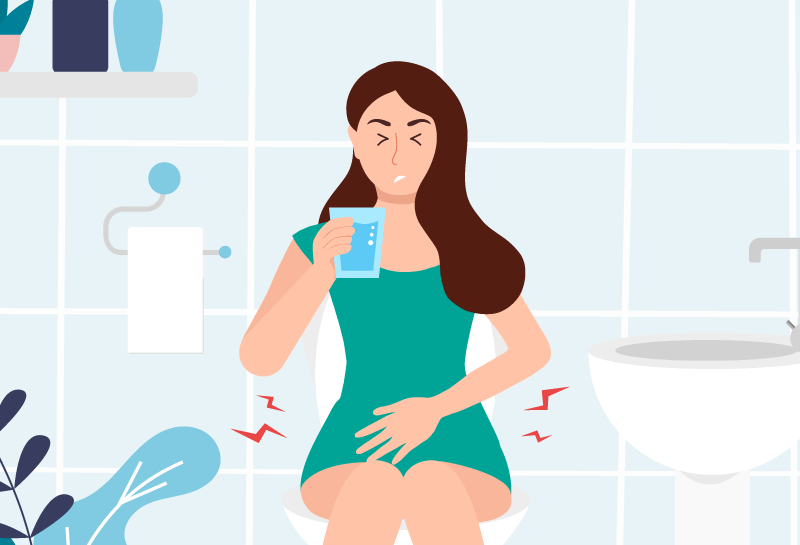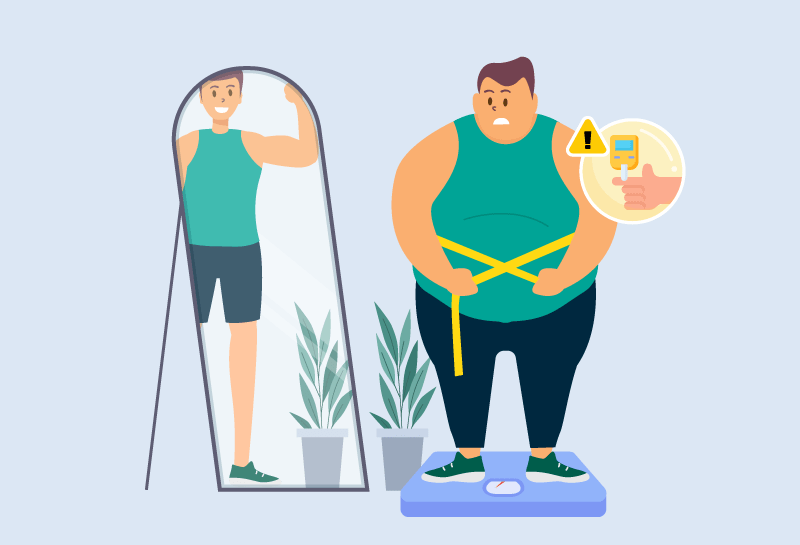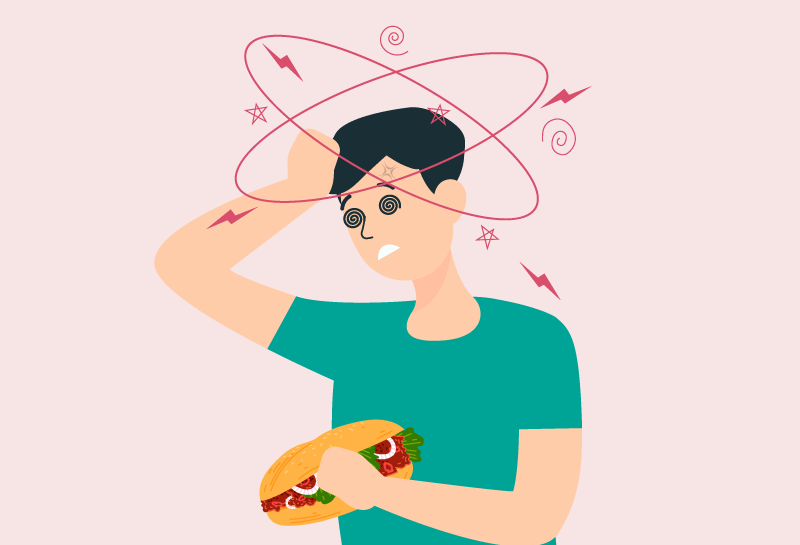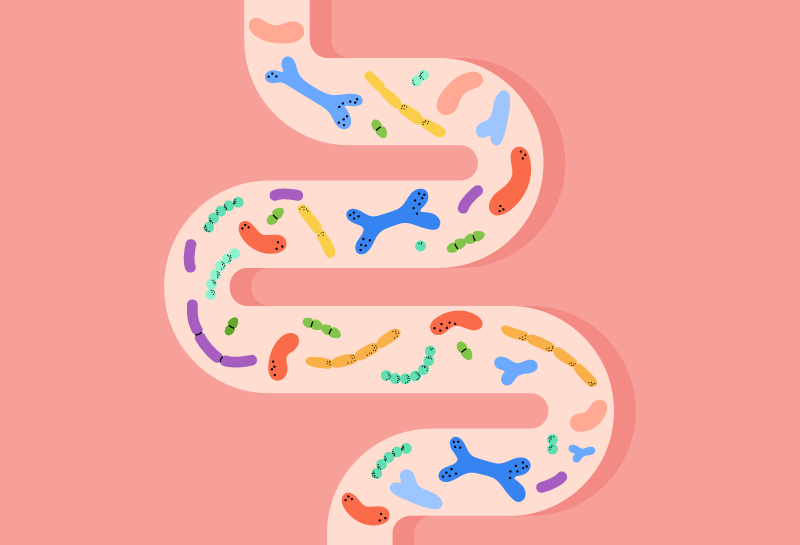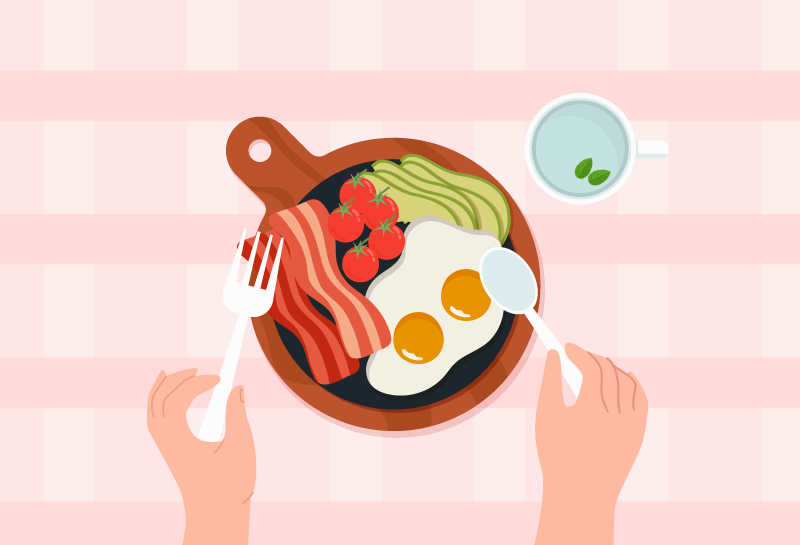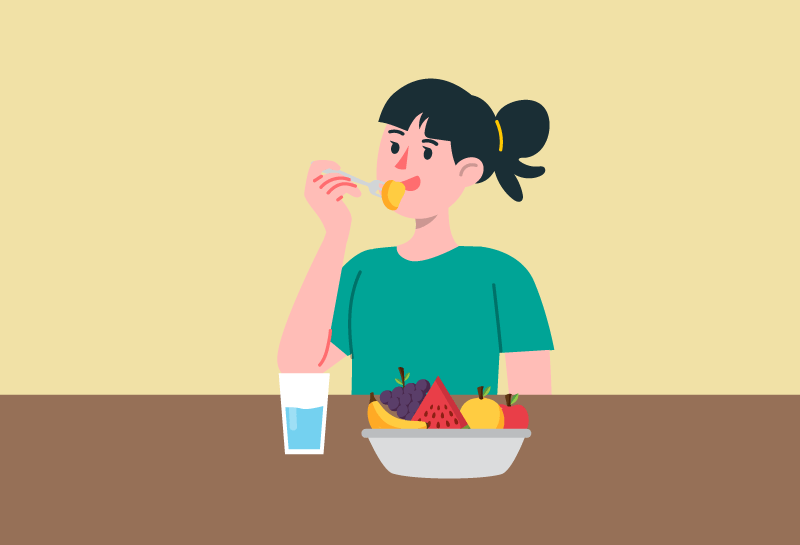If you’ve ever battled with sinusitis, you know how exhausting and frustrating it can be. The constant pressure in your face, the nagging headaches, and difficulty breathing can make even the simplest tasks feel overwhelming. It’s a condition that often goes unnoticed until it interferes with daily life, leaving you wondering what you can do to feel better. Many factors can trigger sinus issues, from allergies to infecti ons, but what if the food you eat is making things worse? Understanding the role of diet in sinus health might be the key to finding relief.

EXPERT INSIGHT
As advised by Dr Goh, habitually consuming the same type of food is the main trigger of systemic tissue inflammation in people with an allergic predisposition. The nose and sinuses are common sites of inflammation. Patients primarily present with nose blockage, sneezing, and a runny nose, with headache, sore throat, cough frequently complicating the clinical symptoms.
Certain food types have a greater tendency to cause tissue inflammation when consumed in large quantities or too frequently. Well-known examples are dairy products, eggs, nuts, spices, coffee, and tea. These foods exacerbate sinus inflammation and worsen chronic sinusitis symptoms.
Patients with chronic nasal inflammation, are advised to keep a food diary to track your meals and identify potential food triggers. Additionally, conducting a dietary rotation where you vary the foods you consume regularly can help reduce the risk of food-induced inflammation.
The foods to watch out for
It’s easy to feel like sinusitis is something you simply have to endure. But what if you could ease your symptoms by being mindful of what you eat? Here’s a breakdown of the foods that could be aggravating your sinuses:

Dairy: The mucus culprit
Many people don’t realise that dairy product like milk, cheese, and yogurt can increase mucus production in the body. This excess mucus can congest the sinuses, making it harder for the body to fight off infection. While dairy isn’t a universal trigger, it’s worth paying attention to how your body reacts after consuming it.

Processed foods: Too much salt and additives
Packaged snacks, fast foods, and canned soups are often high in sodium and additives, which can contribute to dehydration and inflammation. This can thicken mucus, impair drainage, and aggravate sinusitis symptoms.

Sugary foods: Feeding inflammation
Sugar, especially in processed foods, not only weakens the immune system but also fuels inflammation. A diet high in sugar promotes inflammation throughout the body, including the sinuses. This can worsen chronic sinusitis or prolong recovery from an acute infection.

Fried and fatty foods: A recipe for trouble
Trans fats and unhealthy fats found in fried food, pastries, and processed snacks can increase inflammation and impair immune function. These foods can make it more difficult for your body to clear mucus and may prolong sinusitis episodes.

Alcohol: A sinusitis trigger
While a glass of wine or beer might seem like a relaxing way to unwind, alcohol can worsen sinus symptoms for many individuals. Here’s how:
- Alcohol dehydrates the body: Alcohol has a diuretic effect, which increases urination and can lead to dehydration. Dehydration thickens mucus, making it more difficult for the sinuses to clear properly. For those with sinusitis, this can lead to increased congestion and discomfort.
- Alcohol can increase inflammation and vasodilation: Alcohol, especially in larger quantities, can promote inflammation and vasodilation, widening of blood vessels. This can lead to worsened swelling in the sinuses, blocking airflow and increasing pain or pressure in the face. Some alcoholic beverages, like red wine, have also been shown to trigger headaches or sinus headaches due to their high histamine content.
- Alcohol weakens the immune systems: Heavy drinking suppresses the immune system, making it harder for your body to fight off infections. Since sinusitis is often the result of an infection, this can delay recovery and increase the frequency of sinus flare-ups.

EXPERT INSIGHT
Mucus is constantly produced by the tissue lining the nasal and sinus passages. When mucus production becomes excessive, it lead to post-nasal drip, a condition where the excess mucus drains down the back of the throat. This drainage irritates the throat, triggering coughing bouts as the body attempts to clear the mucus. Post-nasal drip is a common cause of throat discomfort and persistent coughing in individuals with sinus issues.
When to seek medical attention
Taking control of your sinus health starts with being proactive. If you experience any of the following, it’s time to seek medical advice from an otorhinolaryngologist (ENT specialist).
- Persistent symptoms: If you’ve had sinus congestion, facial pain, or nasal discharge for more than 10 days.
- Severe pain or pressure: Intense facial pain, headaches, or pressure that doesn’t subside with over-the-counter treatments should be evaluated by a healthcare professional.
- Fever: A fever lasting more than 3-4 days.
- Recurring sinus infections: If you experience frequent sinus infections, or symptoms more than three times a year, it’s time to speak with your otorhinolaryngologist.
This list is not all inclusive. Please see a healthcare provider for any symptom that is severe or concerning.

EXPERT TIP
External triggers such as air pollution and allergens can significantly worsen sinus flare-ups by causing inflammation in the sinuses and respiratory tract. When environmental air quality deteriorates, using air filters and dehumidifiers can help reduce exposure to these triggers and improve indoor air quality.
Simple steps to take charge of your sinus health

Avoid known triggers
Pay attention to how your body responds after consuming dairy, processed foods, or sugary treats. Cutting back on these can help reduce mucus production.

Stay hydrated
Drink at least 8 glasses of water a day. Staying hydrated helps thin mucus and allows your sinuses to drain properly.

Incorporate anti-inflammatory foods
Include foods like berries, leafy greens, ginger, and garlic to fight inflammation naturally.

Get enough sleep
Your immune system works best when you’re well-rested. Aim for 7-9 hours of sleep every night to give your body the energy it needs to heal.

EXPERT TIP
As suggested by Dr Goh, regular physical exercise and maintaining a good sleep routine are important for the normal functioning of the nose and sinuses. When symptoms are persistent or severe, nasal steroid sprays, antihistamines, and saline nose washes are necessary to help manage inflammation and mucus.
If conservative treatments fail, surgery to reduce nasal tissue swelling or to improve sinus ventilation may be required to provide long-term relief.
Your diet is a powerful tool in managing sinusitis. While it’s not a cure-all, being mindful of what you eat can have a significant impact on reducing symptoms and supporting overall health.
Managing sinusitis goes beyond just medication. It’s involves making small, informed changes to your lifestyle. By understanding the link between diet and sinus health, you can take proactive steps to alleviate symptoms and enhance your wellbeing. Simple adjustments, such as staying hydrated, choosing anti-inflammatory foods, and cutting back on known triggers can make a noticeable difference.

EXPERT INSIGHT
As explained by Dr Goh, the nose is the gateway to the respiratory system. When nasal function is impaired, it directly impacts the quality of respiration, which can increase stress to the cardiovascular system. Additionally, chronic sinus issues can disrupt sleep, further affecting the overall health.
This article has been written by Healthful For You and does not represent the opinions, views, or endorsements of the Expert Contributor of this article. The Expert Contributor has solely provided expert insights and tips for informational purposes. Any interpretations, conclusions, or statements beyond these contributions are those of the author and do not reflect the views of the expert contributor. This content is intended for informational purposes only and should not be considered as medical, legal, or professional advice.



 Copied
Copied









 14 mins read
14 mins read 